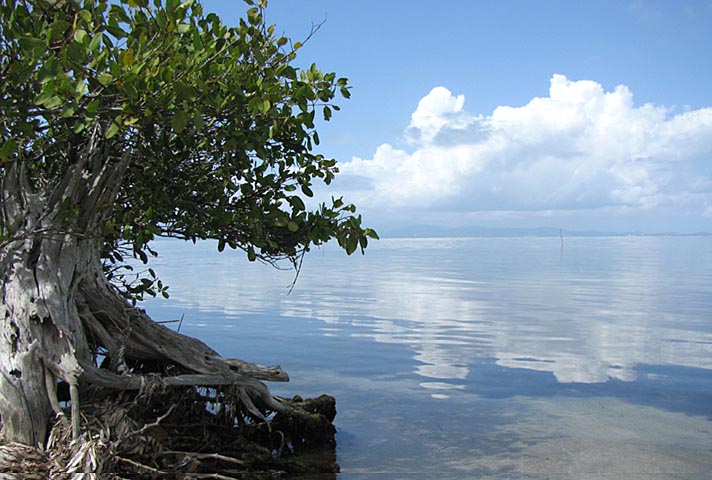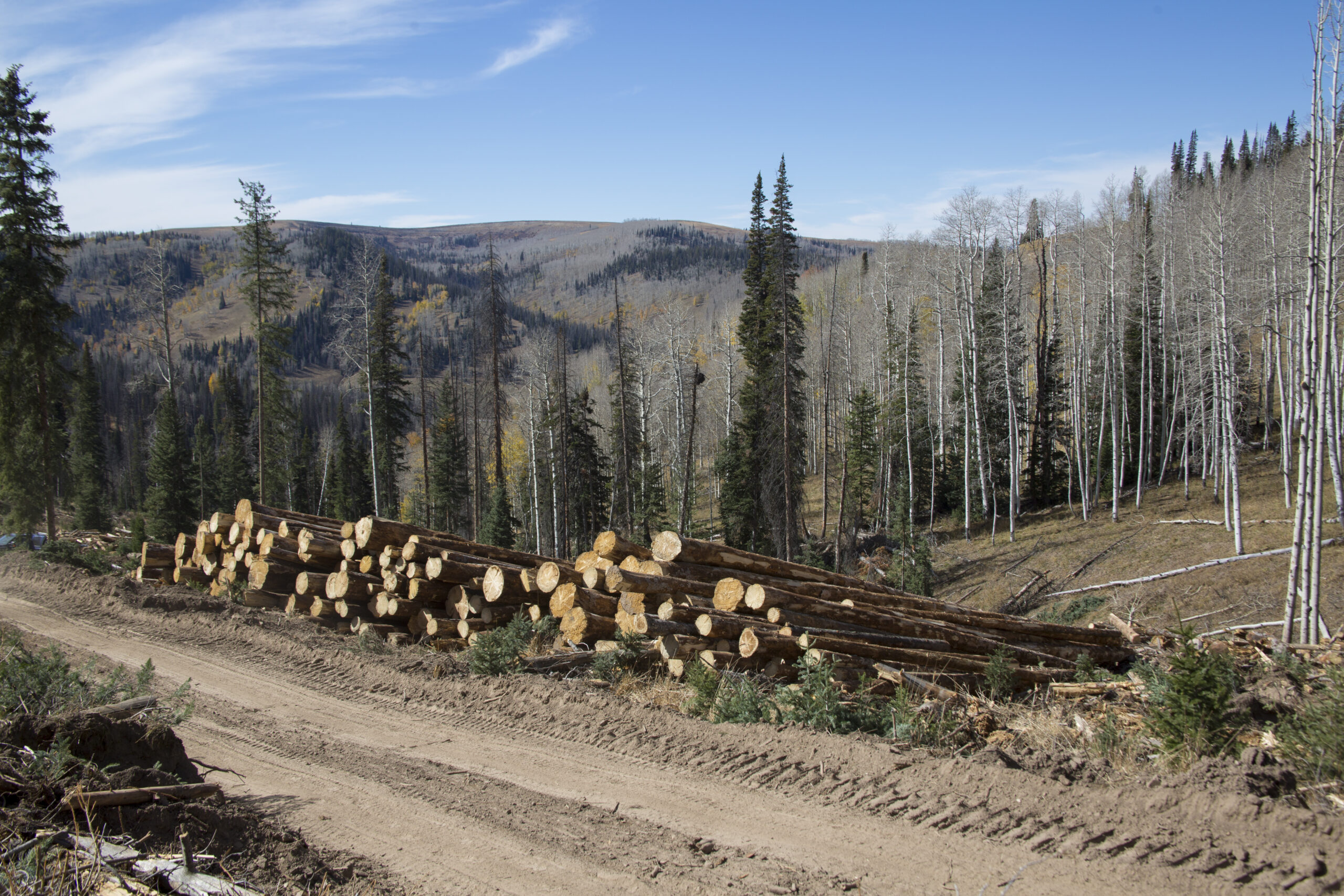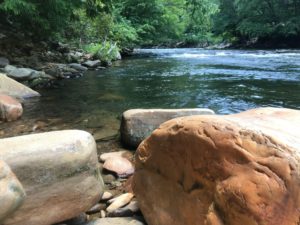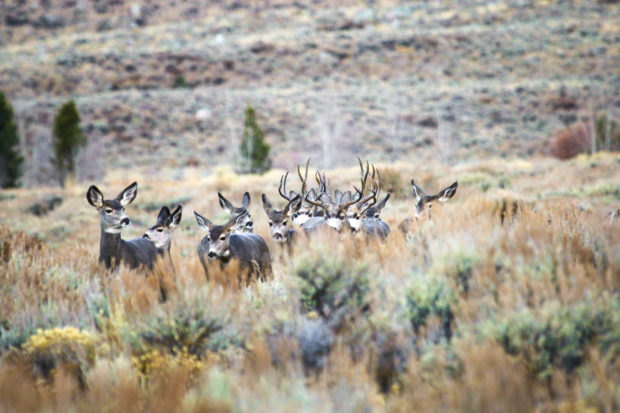Reforms Needed to Protect Wildlife from Coal Leasing on Public Lands

We stand at a pivotal moment for coal development and public lands. As our energy sector rapidly shifts from dirty fuel sources to cleaner, safer ones, we have a chance to make sure that transition takes place in a manner that protects wildlife, habitat and our special places.

A coal mine in the Power River Basin of Wyoming and Montana, where most of the federal leased coal is located. Photo by Ecoflight
The coal industry is undergoing sweeping change, as coal giants like Arch Coal and Peabody Energy have gone bankrupt due to a collapsing coal market, competition from cleaner energy sources, and poor business decisions. Between 2008 and 2013, coal production fell 16%. Also, major mining projects like the Otter Creek Mine have been canceled due to opposition and market changes.
This rapid decline in coal mining and use must be managed to protect wildlife and ensure a just and orderly transition to cleaner energy sources.
A Process to Reform Coal Mining
Critically, the Department of Interior’s (DOI) Bureau of Land Management (BLM) has embarked on an important process to reform destructive strip mining of coal on federal land. The stakes are large. Federal coal leasing accounts for 41% of all U.S. coal production, resulting in 10% of all carbon emissions in the country. BLM’s coal leasing program potentially impacts 570 million acres.
In order to ensure further harm doesn’t occur to unleased lands, BLM has wisely imposed a time-out on new coal leases on federal land while it considers long overdue reforms for the coal leasing program – which has not been modernized in a generation.
Failed Reclamation Harms Wildlife and Habitat
Coal companies – many of which are mining in prime habitat for sage-grouse, pronghorn and mule deer – are supposed to reclaim the land after they have mined the coal.

Pronghorn are at risk from coal mining. Photo: Dave Bezaire/Flickr
These companies are failing miserably to reclaim the lands and waters they have destroyed to extract coal. A recent report by the National Wildlife Federation and its partners showed that after decades of mining, of the 450 square miles of disturbed land in Montana, Wyoming and North Dakota – much of which is federally mined land – only 46 square miles had achieved reclamation resulting in bond release.
Bonding, designed to protect the public from having to pay reclamation costs, is of equal concern. Reclamation for much land in states like Wyoming is backed by self-bonding by companies rather than a third party. Now that these companies are declaring bankruptcy, it is looking more and more like they won’t be good for their bonds; the public will now almost certainly end up with the tab. This practice needs to stop.
Accounting for Carbon Pollution

Federal leasing decisions need to account for coal’s climate impacts. Photo from usgs.gov
Coal’s contribution to climate change is also well documented. Coal is one of the most carbon-intensive fuels, and coal mining is the largest source of carbon emissions from energy development on public lands. Climate change has major impacts on species, threatening to drive a third of all species to extinction. The effects are already apparent as we are seeing declining moose populations in northern states, trout and salmon that are finding it harder to survive in streams, and sea turtles that are seeing the beaches they need for reproduction wash away.
A Fair Return for Taxpayers
On top of these impacts to wildlife, the public is not getting a fair return for the leasing of this coal, which is a public resource. Royalty rates are too low – some effectively as low as 2%, well below the 18.75% paid for other energy development. Leases are not competitive either; about 90% of coal lease sales only receive bids for a single bidder.
As a result, the American people have been shortchanged by nearly $30 billion over the past three decades – money that could be invested in maintaining our public lands and waters.
Needed Reforms
In light of these failures and needs, BLM, working with other important agencies like the Office of Surface Mining, must institute reforms that will:
- Fix the decades-long failure of coal mining companies to reclaim lands and waters important to wildlife and before opening up more land to coal mining.
- End the practice of leasing to companies that are self-bonded.
- Modernize the federal coal royalty system and increase rates to ensure a fair public return for the publicly held resource.
- Ensure an open, competitive and transparent leasing process.
- Stop mining on unsuitable lands such as environmentally sensitive lands.
- Address underfunded needs, particularly on public lands.
- Require that leasing decisions be consistent with federal carbon reduction policy and goals, and properly internalize the costs of carbon pollution to industry.
- Ensure a just transition to cleaner sources of energy.
These reforms must be a high priority of both this and the next Administration. If these reforms are done right, they can ensure that wildlife, impacted communities and our climate are protected as our energy future changes.
Originally Posted on NWF.org




